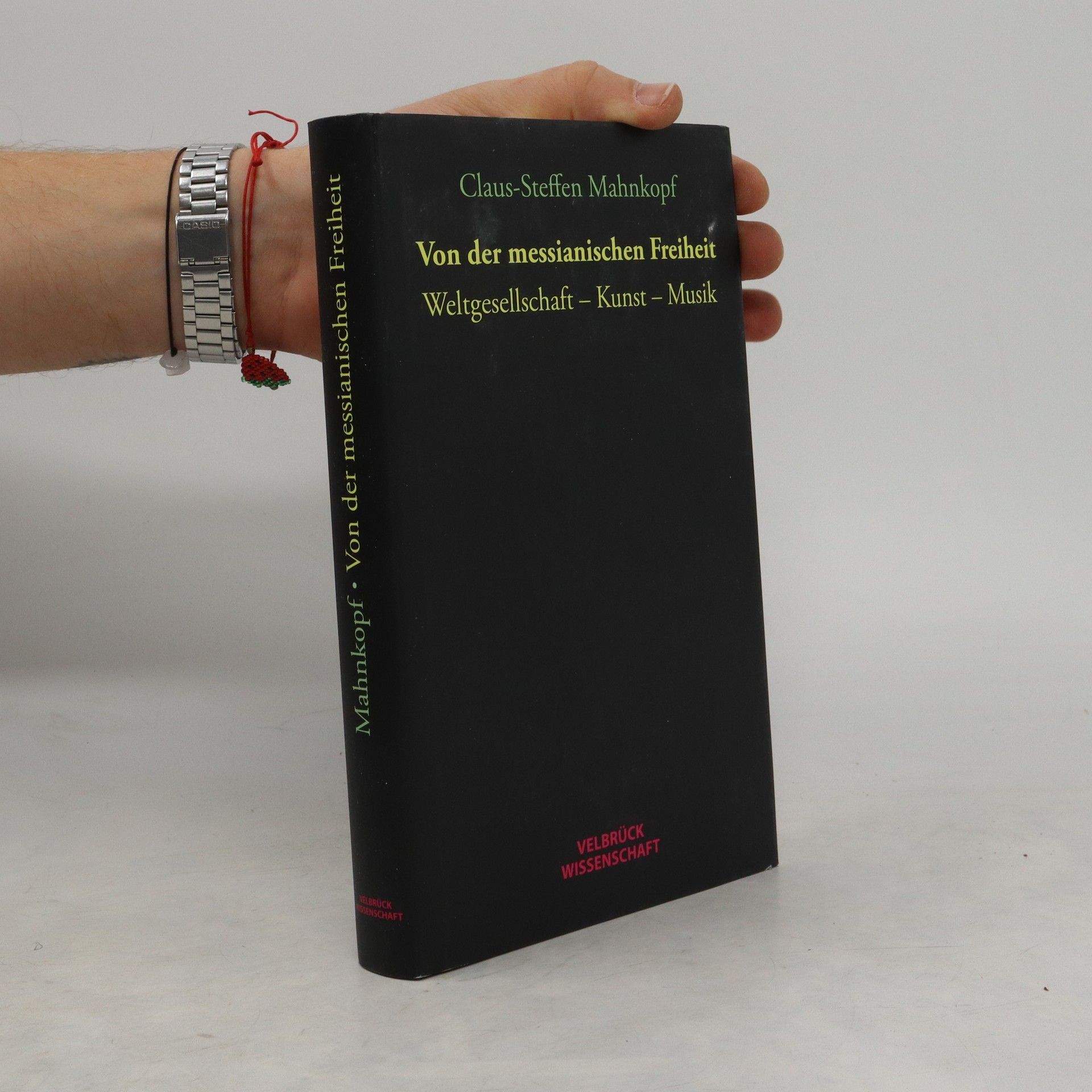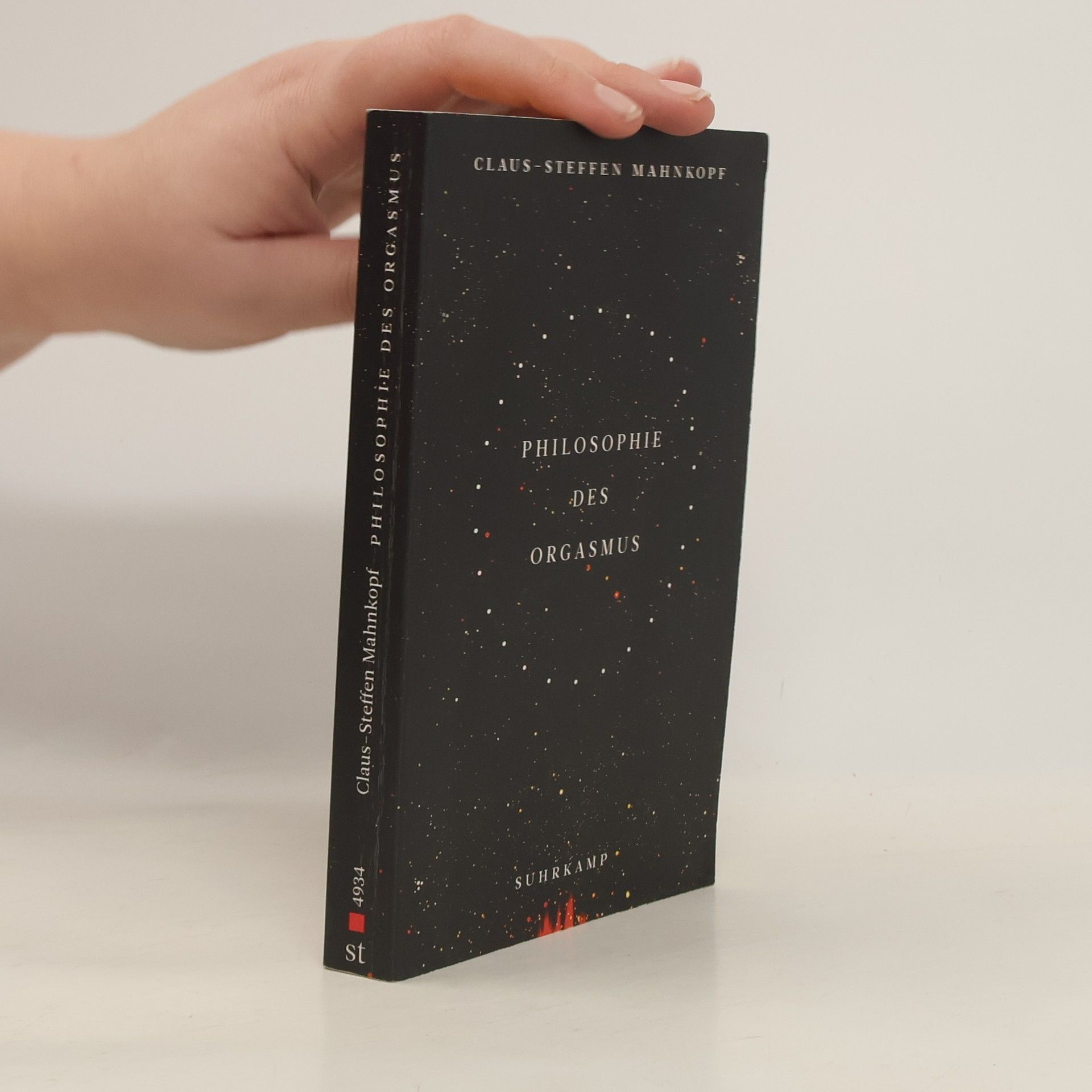Wer den schönsten Augenblick sucht, kommt rasch auf den Höhepunkt der Höhepunkte: den Orgasmus. Wiewohl Dauerthema in den Medien, ist die sexuelle Erfüllung mitnichten eine einfache Sache. Sie ist biologisch und kulturell, sinnlich und symbolisch, fleischlich und geistig, emotional und kommunikativ. Und weiblich und männlich, mithin zutiefst menschlich. In ihr treffen die Naturgeschichte und die Evolution auf die großen Erzählungen vom menschlichen Glück, einer emanzipierten Gesellschaft, einer reifen Liebeskultur und eines befreiten Geschlechterverhältnisses, kurz: eines guten Lebens. Das Staunen über den Orgasmus erhält in diesem Buch eine Philosophie, die Wissenschaft mit Kunst, Literatur, Film und Musik, die intellektuellen Diskurse mit Alltagserfahrungen und die politische Frage mit der Utopie einer leidenschaftlichen und erfüllenden Glückseligkeit verbindet.
Claus Steffen Mahnkopf Book order (chronological)


Freiheit ist mehr als ein Recht; sie ist eine menschliche Bestimmung, die über das bloße Fehlen von Mangel und Unmündigkeit hinausgeht. Diese Betrachtung von Freiheit als "Freiheit-zu" ist zentral für das Anliegen des Buches. Es wird die philosophische Frage erörtert, was das europäische Erbe einer emphatischen Freiheit für die zukünftige globalisierte Menschheit bedeutet. Indem die Postmoderne mit ihrem Verlust an Utopien hinter sich gelassen wird, wird versucht, die Tradition radikaler Aufklärung und gesellschaftlicher Revolutionen für eine Gesellschaft freier Menschen fruchtbar zu machen. Das Messianische wird als eine entkernte Struktur der Erwartung und aktiven Handlung betrachtet. Es wird gefragt, was Menschen mit ihrer Freiheit anfangen können und sollten. Nach der Erörterung politischer, rechtlicher und ökonomischer Perspektiven wird der Ansatz einer messianischen Freiheit auf die Kunst übertragen. Die Rolle autonomer, selbstbewusster Kunst, die Wahrheitsansprüche erhebt und im öffentlichen Raum agiert, wird beleuchtet. Im dritten Schritt wird Musik als bedeutende Kunstform behandelt, inklusive populärer und Kunstmusik sowie deren Warencharakter im Kapitalismus. Schließlich werden Überlegungen zu einer "messianisierten" Musik angestellt. Das Schlusskapitel diskutiert die Zukunft der Freiheit im 21. Jahrhundert, zwischen Evolution und Revolution. Nach der Kritischen Theorie der Musik (2006) präsentiert der Autor nun sei